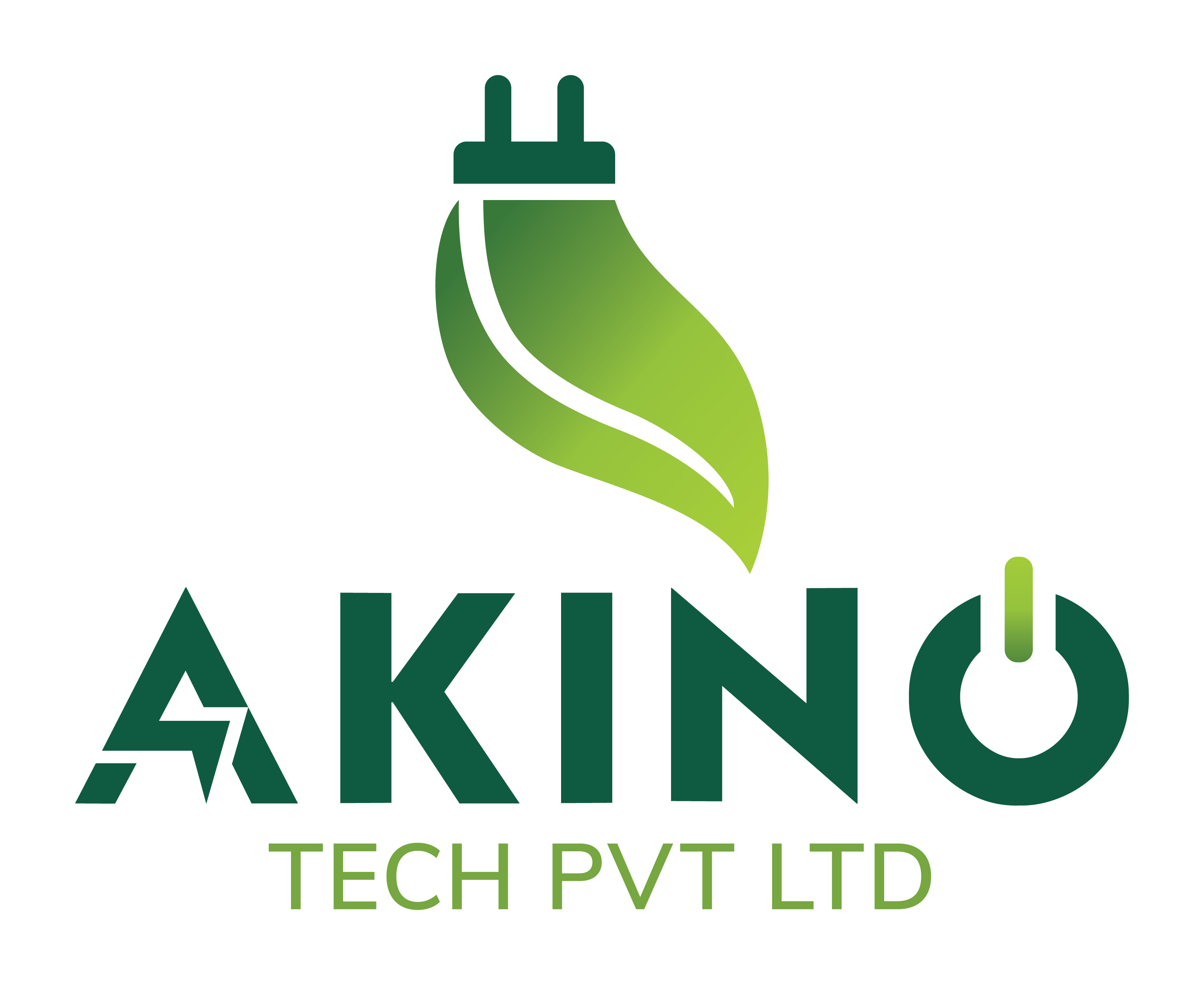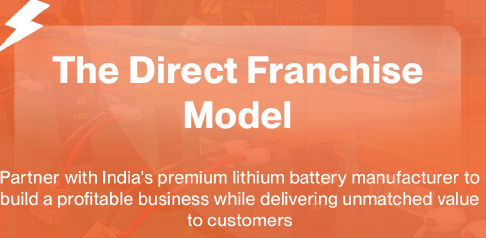Find EV EVSE course
Lithium-ion battery market at your city
The lithium-ion battery market includes both manufacturing of battery components and distribution of finished batteries for various applications like consumer electronics, two-wheelers, and electric vehicles. The rising reliance on portable electronics, the growth of the electric vehicle sector, and the need for renewable energy storage fuel market growth increasing Lithium-ion battery demand.
Durgapur's lithium-ion battery market offers opportunities in battery manufacturing, including components and assembly for electric vehicles (EVs) and renewable energy storage, as well as in distribution and retail for industrial and consumer markets.
2023 will see 448,000 new electric vehicles hitting UK roads
By the end of 2022, more than 1.1 million electric cars had been registered in the UK in the ‘modern’ EV era (since 2010), taking 12 years to reach that figure. The SMMT forecasts that the next 1.1 million will be registered in the next two years, with more than 2.2 million expected to be on the road by the end of 2024.
This year should see a major increase in the volume of electric cars hitting dealer and independent forecourts in the UK thanks to the enormous annual growth in new EV registrations back in 2020, when the market grew by over 140% with more than 175,000 registered. The Tesla Model 3 was supplied in particularly large volumes, so we can expect to see a significant number in the wholesale and retail markets over the coming months.
“The Government’s announcement of an EV Infrastructure Strategy to ensure the UK is ‘EV-fit’ by 2030 is a step in the right direction. Access to reliable charging infrastructure, both at-home and across the road network, is a key barrier to EV adoption, as identified by major global business members of our EV100 initiative this week.
The good thing about charging infrastructure is that it doesn’t take a long time to build and install it. Roadside charging stations can be planned and built in a matter of weeks or a few months, while a charging station at home or work takes even less time than that to plan and install.
Electric Vehicles new Opportunities
Businesses are increasingly going digital to break the cycle of escalating pollution and limit the usage of natural resources, which raises CO2 emissions in our environment. Currently, our country is riding the EV wave. EV Platforms are widely seen in the economy, and most people interact with them every day. EV technologies, and their ecosystems of complementors, are a manifestation of this shift in the way firms are organizing to create greater value for end-users.
EV & EVSE MSME Development Knowledge
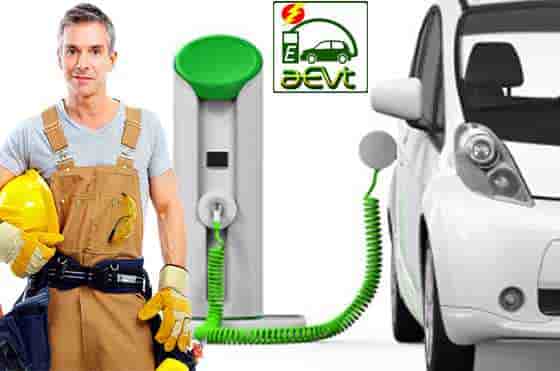
Course Overview:
EV EVSE Business Management for Entrepreneurs:India to become a manufacturing hub for electric vehicles in five years. Indian EV industry to represent Rs 500 billion opportunity by 2025.
This Techno Commercial knowledge: Throughout this session, AEVT bridges the needs of startups
Course Outcome:
Candidate can understand the technology from basic of EV to EVSE equipment like Lithium-ion battery, Battery pack assembly process, EV Motor, Charger, charging station development and all others parts/ equipment's calculation, selection, building a Legal Foundation, Understanding Finance Basics, Business Planning and Fundraising.Today's Offer: FLAT 18% discount for online Session
Solar charging stations for electric vehicles have emerged as one of the best ways to reduce India’s dependence on fossil fuels for powering various modes of transport. We anticipate that in the coming years, nearly everyone who owns an Electric vehicle system will install a solar charging station in their home. This will necessitate a fundamental shift in how we think about refueling our cars, as well as a natural evolution of our energy infrastructure. The battery rating of an EV indicates the amount of power that it can store, which indicates how much power is required to fully charge it. And common EV battery sizes 100KWh to 200KWh. Solar-powered EV charging stations are the solution to bring that percentage down to zero. Not only is it beneficial for the environment, but it is also a major benefit for EV owners by reducing electricity bill.
The Indian government has concluded that no license is required to build charging infrastructure as long as it meets the 'Ministry of Power' standards. As a result, there is no need for a special permission to transmit, distribute, or exchange power for the purpose of charging electric car batteries.
State governments have even announced the mandatory installation of charging stations in commercial and residential complexes, as well as a particular percentage reserved for electric vehicles in such complexes,to pave the way for adoption of the EV eco system.
Solar Power EV Charging Station
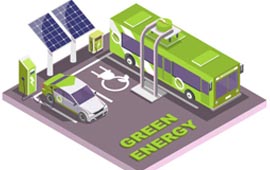
Solar Power Electric Vehicle Charging Station
Course Overview:
Solar charging stations for electric vehicles have emerged as one of the best ways to reduce India’s dependence on fossil fuels. Nearly everyone who owns an Electric vehicle will install a solar charging station in their home. Solar-powered EV charging stations are the solution to bring that percentage down to zero.Course Outcome:
Solar Power EV Charging Station (Design and Development) Program is a master program that takes an Engineer, designe engineer, installer from site assessment, all the way through power-up and pinpointing. Installers who take this knowledge will have all the information needed to efficiently and accurately assess, design and install charging stations.Today's Offer: FLAT 18% discount for online Session
In 'white gold' rush, India kick-starts talks with lithium-rich nations
Jammu and Kashmir's reserve might be present with a large amount of lithium, but the current amount is insufficient to match with the world's top reserves of Lithium. For India to become self-reliant in the field of solar energy storage and EV manufacturing without being dependent on China for EV battery supplies, it is important to own more such Lithium reserves and enhance its presence in overseas lithium mines. Solar lighting system operates on electricity from batteries, charged through the use of solar photovoltaic panels. It is composed of a battery, solar panel, LED lamp, and charge controller. The stored energy is collected in a rechargeable Lithium-ion battery used later to produce lighting at night. The rapid infrastructure development in all sectors of India is pushing local solar light manufacturers to compete and deliver innovative solar lighting products at low prices to increase their presence in the market.
Lithium-ion Battery pack assembly
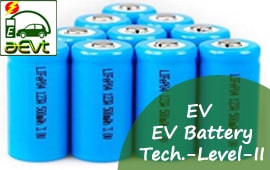
Techno Commercial knowledge to setup Lithium-ion battery assembly line for solar application, energy storage and EV 2W, 3W etc.
Practical skills - cell sellection, cell IR testing, cell balancing, charge discharge testing, module & pack assembling, enclosure selection, all machinery selection, assembly line planning and layout drawing, costing of assembly line, working capital, investment, ROI, business projection making, different product design.
Course Outcome:
Get the knowledge of Lithium-ion cell parameters, Cell Chemistry, Cell Architecture, Thermal Management, BMS and battery pack assembly technical and commercial detail before setup assembly line.
Today's Offer: FLAT 18% discount for online session
MINISTRY OF ROAD TRANSPORT AND HIGHWAYS
NOTIFICATION
New Delhi, the 11th November, 2025
All E-rickshaw or E-cart manufactured on or after the 1st day of April, 2027 shall be fitted with lithium-ion battery packs and the performance requirements of the same shall be as per AIS-156 (Part 1) and (Part 2), as amended from time to time.”.
Quick Inquiry Form
Class Time / Slot
Online class Available slot for working professionals
Next batch Class will start from January - 2026
| Slot | IST Time | Status |
| 1 | 7:30 AM - 9:00 AM | |
| 2 | 10:30 AM - 12:00 Noon | |
| 3 | 3:00PM - 4:30PM | |
| 4 | 8:00 PM - 9:30PM |
| Slot | IST | WAT | SAST | EAT | KST |
| 1 | 7:30 AM | 3 AM | 4 AM | 5 AM | 10 AM |
| 2 | 10:30 AM | 6 AM | 7 AM | 8 AM | 1 PM |
| 3 | 3 PM | 10:30 AM | 11:30 AM | 12:30 PM | 5:30 PM |
| 4 | 8 PM | 3:30 PM | 4:30 PM | 5:30 PM | 10:30 PM |
4 Slot 4 batch each slot
Admission Going on for
EV Technology and Business Management - Techno Commercial Training (online)
Today's 18% Discount From:
January - 2026

Course Duration: 2 + 1 Months
EV Battery Pack Assembly Line Training (online)
Today's 18% Discount From:
January - 2026

Course Duration: 2 + 1 Months
Solar Power EV Charging Station (online)
Today's 18% Discount From:
January - 2026

Course Duration: 2 + 1 Months
Visit our Google Map












View all Job








